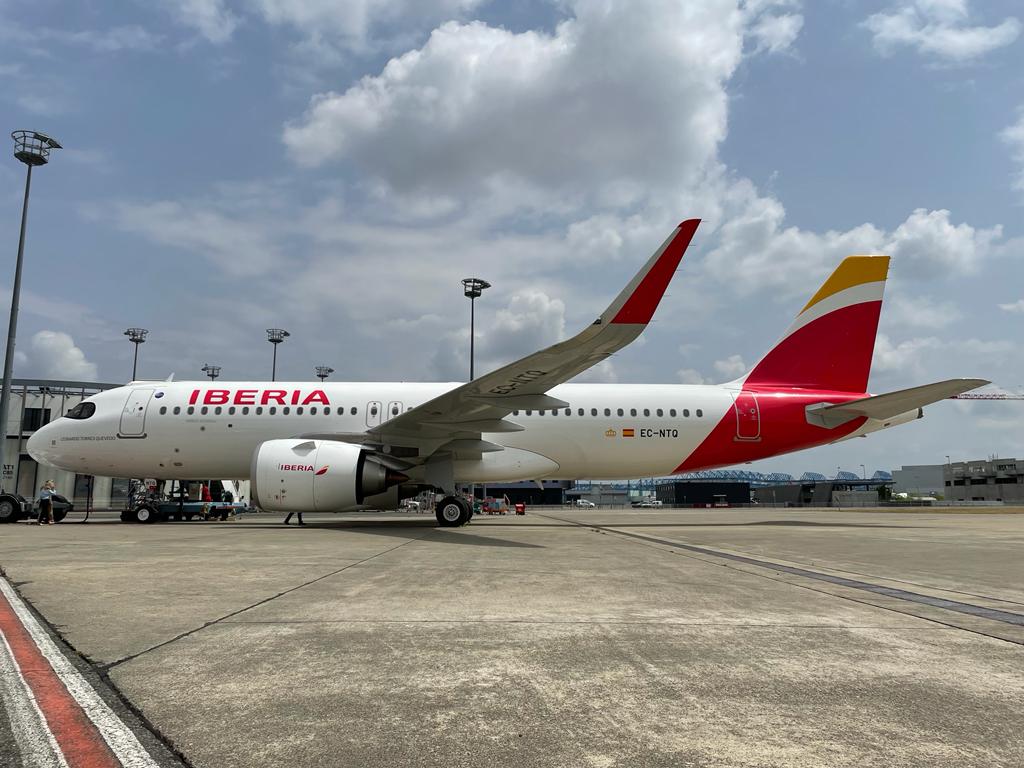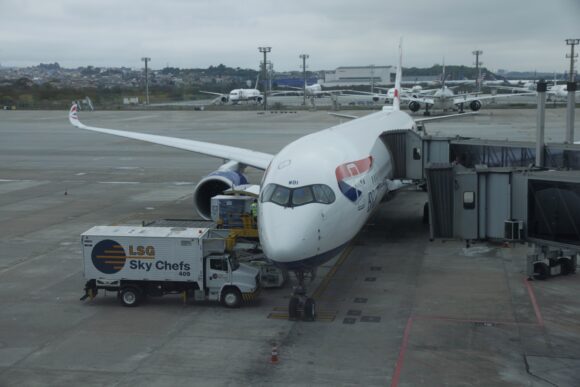
iberia f8356b430b94e
Like Air France-KLM, International Airlines Group (IAG) also returned to profitability in the second quarter, its first profit since Q4 2019. The parent airline group of British Airways and Iberia expects to end the full year at a profit, despite operational issues that have forced BA to reduce capacity until October by eighteen percent. IAG on track for profitable 2022 despite Heathrow disruptions.
The worst hit is British Airways, which is suffering from serious constraints at London Heathrow. The airport has capped daily capacity to 100.000 passengers until mid-September, which has forced airlines to cut capacity and flights. BA has had to cancel 2.9 percent of its flights in Q2. In May, the carrier announced the cancelation of 16.000 flights between May and October, which translated into a ten percent capacity cut.
Since then, operational issues and staff shortages at Heathrow have resulted in further cuts, which together add up to the eighteen percent reductions of total flights or thirteen percent in capacity in available seat kilometers (ASK). The labor situation at London’s biggest airport is slowly improving: BA has brought in 3.200 more staff into Heathrow, but it needs 7.000 by the end of the year in order to get operations back to normal. “They are stabilizing, even if they are not at the level that we would like to see”, said Chief Financial Officer Nicholas Cadbury.
Capacity restrictions at London Heathrow have forced British Airways to reduce capacity to seventy percent for the full year. Here is an A350-1000 in Sao Paulo. (Richard Schuurman)
British Airways will operate at on average seventy percent capacity this year, well below the 88 percent of Aer Lingus which has suffered only a one percent capacity cut in Q2. Iberia will operate at 87 percent and Vueling at even 99 percent. Demand in Spain is very strong, notably for domestic travel, and airports have been able to cope with this demand, resulting in no capacity reductions in Q2. LEVEL will operate at 51 percent capacity this year.
This brings the average capacity of IAG to 78 percent for the year, with Q3 projected at eighty percent and Q4 at 85 percent. Capacity in Q1 was 65 percent. Long-haul bookings at 95 percent on the North Atlantic and even Asia back to around eighty percent. Corporate travel also continues to recover while Premium leisure has almost fully recovered to 2019 levels. “Inflation remains a concern, but we see no change in forward bookings”, said CEO Luis Gallego.
Net profit in Q2, net loss in HY1
In line with its expectations in March, IAG reported a €133 million net profit in Q2 compared to a €-981 million loss for the same period last year. The operating profit was €293 million versus €-967 million last year. Total revenues ended at €5.916 billion compared to €1.244 billion, of which €4.949 billion came from passengers (2021: €682 million) and €411 million from cargo (€419 million). Cargo was entirely driven by higher yields as cargo traffic was down by 32.6 percent as China was in lockdown.
Total expenses went up to €5.6 billion from €2.2 billion. Fuel expenses and emissions charges accounted for €1.6 billion, up from €271 million. The 150 percent increase in fuel prices was limited to 45 percent thanks to hedging.
For HY1, IAG still was loss-making at €-654 million (2021: €2.048 billion). The operating loss was €-438 million (€-2.035 billion), with revenues at €9.351 billion (€2.212 billion).
By airline, Iberia, once again, was the most profitable in the IAG family, producing a €93 million Q2 operating profit compared to a €-143 million loss last year. Revenues increased to €1.384 billion from €501 million, thanks to strong demand in the domestic and Atlantic markets.
British Airways improved its operating result to €54 million from €-566 million last year and grew revenues to €2.737 billion from €506 million. Long-haul unit revenues were positive thanks to premium, while short-haul unit revenues also improved and were positive in June. Leisure demand is very strong at BA and continues to outpace capacity. Gallego is happy with the performance of the new short-haul unit at Gatwick that became operational during the quarter.
Low-cost Vueling produced a €46 million operating profit versus €-97 million last year. Revenues increased to €717 million from €149 million. Vueling is operating at full capacity and is seeing strong demand in the Spanish market. The basis in Paris Orly and London Gatwick are outperforming expectations, although the ramp-up was slightly diluted.
Cadbury is happy that Aer Lingus is also back to profitability, producing a €15 million operating result in Q2 compared to €-96 million last year. Revenues were at €475 million versus €38 million in 2021, when Ireland was one of the countries with the most severe travel restrictions. Doing particularly well are the European routes and those to London.
Order for 37 more Airbus A320neo family aircraft
IAG continues its fleet renewal. On Thursday, it announced a follow-on order with Airbus for 37 aircraft, of which twelve are A320neo’s from its 2013 order that have been firmed up into A320neo’s and A321neo’s. Another 25 are new and are complemented by fifty options. The order needs shareholder approval, but that is a formality. The aircraft will be delivered between 2025 and 2028, with the mix of the smaller and bigger version to be decided as will be the airline to get them. All neo’s are for the replacement of older A320ceo aircraft. In June, IAG already announced an order for seventeen A320neo’s and five A321neo’s.
The Airbus order is complimentary to the one placed with Boeing in May for 25 MAX 8200s and 25 MAX 10s for delivery between 2023 and 2027, with another 100 on option. For now, Gallego is optimistic that IAG will get these aircraft on time, but there is no full certainty about that. The airline group also has ten 787-10s on order for delivery this year through 2024, which it hopes to get as soon as possible.
There are still seventeen A350s on order too, on which Iberia will introduce a new Business Class suite, wider Economy seats, and a new inflight entertainment system this autumn. BA will continue the rollout of its new Business suites on the fleet. Delivery of the first Boeing 777-9 to British Airways is now expected in 2026 instead of 2024 mentioned by IAG until now, which follows the decision by Boeing in April to delay the first deliveries from late 2023 to 2025. All eighteen 777-9s are scheduled for delivery through 2028.
Strongest liquidity position since 2020
IAG has €13.5 billion in liquidity at its disposal, the highest it has ever had since the start of the pandemic. Of this, €9.2 billion in cash and cash equivalents, and interest-bearing deposits, plus €4.3 billion in undrawn funds. The group reduced net debt by €910 million to €10.979 billion and is scheduled for more repayments through 2029.
The airline says it is well-protected against the high fuel prices, with 83 percent of costs hedged for Q3 or 73 percent for HY2. Right now, on average 34 percent is hedged for 2023. Like its competitors in Paris and Amsterdam, IAG is expecting a significantly better operating result in Q3 and will return to profitability for the full year, with net cash flow also expected to be significantly positive.
Views: 2





